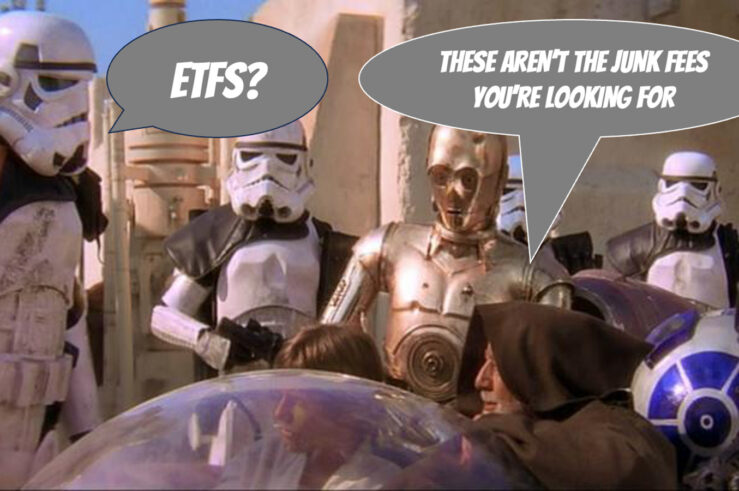Showing results for: “digital markets act”
Don’t wanna brag or nothin, but critics have been right about net neutrality so far: TWC complaint and the Consumer Watchdog petition show it
Remember when net neutrality wasn’t going to involve rate regulation and it was crazy to say that it would? Or that it wouldn’t lead to regulation of edge providers? Or that it was only about the last mile and not interconnection? Well, if the early petitions and complaints are a preview of more to come, ... Don’t wanna brag or nothin, but critics have been right about net neutrality so far: TWC complaint and the Consumer Watchdog petition show it
How to Reform Operation Choke Point
“Operation Choke Point” (OCP) is an interdepartmental initiative by the U.S. Department of Justice (DOJ) and federal financial services regulators to discourage financial intermediaries from dealing with consumer fraud-plagued industries. In an August 4 Heritage Foundation Legal Memorandum, I discuss the misapplication of this potentially beneficial project and recommend possible measures to reform OCP. If ... How to Reform Operation Choke Point
DOJ Gears Up To Challenge Proposed Google-ITA Merger
The WSJ reports that the DOJ is getting itself ready to challenge the Google-ITA merger (see earlier TOTM posts here and here): Justice Department staff lawyers have begun preparing legal documents for use in a possible court challenge to the $700 million deal for ITA Software Inc., but no decision to proceed has been made, ... DOJ Gears Up To Challenge Proposed Google-ITA Merger
Delaware uncorporate law evolves an escape from Dodd-Frank
It’s been interesting to watch uncorporations (particularly LLCs and limited partnerships) evolve over the last twenty years or so. Perhaps the most interesting aspect of this evolution is what’s been happening in Delaware regarding contracting over fiduciary duties. This is particularly intriguing because it concerns a key area of difference between corporations and uncorporations — ... Delaware uncorporate law evolves an escape from Dodd-Frank
Unconscionability for corporate law
So you thought unconscionability was for furniture stores? Larry Cunningham has news for you: This Article explains why and how traditional contract law’s theory of unconscionability should be used to create a modicum of judicial scrutiny to strike obnoxious pay contracts and preserve legitimate ones. Under this proposal, pay contracts that are the product of ... Unconscionability for corporate law
In the Fight Against Qualcomm, Apple’s Loss is Apple’s Gain
Apple’s legal team will be relieved that “you reap what you sow” is just a proverb. After a long-running antitrust battle against Qualcomm unsurprisingly ended in failure, Apple now faces antitrust accusations of its own (most notably from Epic Games). Somewhat paradoxically, this turn of events might cause Apple to see its previous defeat in ... In the Fight Against Qualcomm, Apple’s Loss is Apple’s Gain
FCC-FTC Plans for Welfare-Enhancing Cooperation on Online Consumer Protection
As the Federal Communications (FCC) prepares to revoke its economically harmful “net neutrality” order and replace it with a free market-oriented “Restoring Internet Freedom Order,” the FCC and the Federal Trade Commission (FTC) commendably have announced a joint policy for cooperation on online consumer protection. According to a December 11 FTC press release: The Federal ... FCC-FTC Plans for Welfare-Enhancing Cooperation on Online Consumer Protection
Will the Supreme Court’s Halo Electronics Decision Have a Desirable Halo Effect, Reducing Incentives to Infringe Patents?
The U.S. Supreme Court’s unanimous June 13 decision (per Chief Justice John Roberts) in Halo Electronics v. Pulse Electronics, overturning the Federal Circuit’s convoluted Seagate test for enhanced damages, is good news for patent holders. By reducing the incentives for intentional patent infringement (due to the near impossibility of obtaining punitive damages relief under Seagate), ... Will the Supreme Court’s Halo Electronics Decision Have a Desirable Halo Effect, Reducing Incentives to Infringe Patents?
The 2015 International Competition Network’s (ICN) Unilateral Conduct Workbook Chapter on Tying and Bundling
In a recent post, I presented an overview of the ICN’s recent Annual Conference in Sydney, Australia. Today I briefly summarize and critique a key product approved by the Conference, a new chapter 6 of the ICN’s Workbook on Unilateral Conduct, devoted to tying and bundling. (My analysis is based on a hard copy final ... The 2015 International Competition Network’s (ICN) Unilateral Conduct Workbook Chapter on Tying and Bundling
The Forgotten Strand of the Anti-Monopoly Tradition in Anglo-American Law
Admirers of the late Supreme Court Justice Louis Brandeis and other antitrust populists often trace the history of American anti-monopoly sentiments from the Founding Era through the Progressive Era’s passage of laws to fight the scourge of 19th century monopolists. For example, Matt Stoller of the American Economic Liberties Project, both in his book Goliath ... The Forgotten Strand of the Anti-Monopoly Tradition in Anglo-American Law
Evaluating Leegin
Thom’s excellent post covers most of the important points in Leegin and offers a fairly comprehensive critique of what I deemed to be a surprisingly weak dissent from Justice Breyer. As we’ve noted over and over here at TOTM, the death of Dr. Miles is clearly the right outcome judged based upon the underlying antitrust ... Evaluating Leegin
Are Early-Termination Fees ‘Junk’ Fees?
Cable and satellite companies often get a bad rap for early termination fees (ETFs). Consumer advocates portray them as “junk fees” or billing traps meant to cheat customers. And the Federal Communications Commission (FCC) appears to accept these allegations at face value, characterizing ETFs as “junk fee billing practices … that penalize subscribers for terminating ... Are Early-Termination Fees ‘Junk’ Fees?






